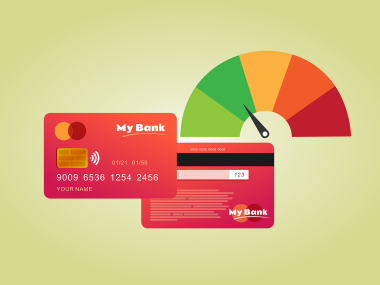When you’re in the market to buy a home, it’s critical to understand the connection between your credit score and the mortgage rates you’ll be offered. This nexus can make a huge difference in the cost of your home over the lifetime of your mortgage.
A good credit score can translate into substantial savings by securing lower interest rates, making homeownership more affordable in the long term. Let’s explore how your credit score affects the mortgage rates you’ll garner and how you can improve your chances for a favourable rate.
How Does My Credit Score Impact My Mortgage Rate?
Credit scores serve as a pivotal metric for lenders when determining mortgage rates. The principles behind this are straightforward:
- Higher credit scores often yield lower mortgage interest rates because lenders view well-scored borrowers as less risky, meaning there’s a lower chance they’ll default on their loans.
- Conversely, lower credit scores might lead to higher interest rates or even a flat-out mortgage application denial, as lenders may mark these applicants with a greater risk of loan default.
- Your credit score also affects the range of mortgage options available to you, with superior scores unlocking more competitive loan products.
- Before applying for a mortgage, improving one’s credit score can result in impressive savings on interest throughout the life of the loan.
When assessing credit, lenders generally refer to the middle score from the three major credit bureaus: Experian, TransUnion, and Equifax.
For those wishing to secure the best possible mortgage rates, here are some actionable steps:
- Analyze your credit reports: Ensure they’re accurate and up-to-date to reflect your creditworthiness.
- Reduce debts: Lowering your credit utilisation can positively impact your credit scores.
- Regular, timely payments: Your payment history is a significant credit score component.
- Be patient: Good credit is built over time, so maintain good habits and allow your score to rise naturally.
By integrating these strategies, potential homeowners can increase their chances of a favorable mortgage rate.
What Credit Score Range Is Considered Good To Qualify For The Best Mortgage Rates?
The eligibility for the top-notch mortgage rates directly correlates with your credit score ranking:
- A good credit score, according to the FICO scoring model, usually oscillates between 670 to 739.
- For the “very good” (740 to 799) or “exceptional” (800 and above) brackets, lenders earmark the best mortgage terms.
- Higher credit scores equate to lower interest rates and enhanced loan terms, which can sum up to thousands in saved funds throughout a mortgage.A score above 760 is typically the benchmark to qualify for the lowest mortgage rates from most lenders.
- Prospective homeowners should familiarize themselves with their credit scores well ahead of mortgage applications to secure beneficial rates.
To effectively position yourself for these rates, consider the following:
- Regular credit monitoring: Stay vigilant and aware of where your credit score stands.
- Limit new credit inquiries: Each new credit inquiry can potentially decrease your credit score.
- Maintain a varied credit mix: This displays to lenders that you can manage different types of credit responsibly.
- Consult a financial advisor: For personalized advice on elevating your credit score.
These suggestions can enhance your likelihood of qualifying for the best mortgage rates.
Can Improving My Credit Score Help Me Get A Lower Mortgage Rate?
Enhancing your credit score is a strategic move for obtaining a more attractive mortgage rate:
- Lenders associate higher credit scores with reduced risk, often rewarding such borrowers with more appealing mortgage rates.
- A more favorable mortgage rate can culminate in substantial interest payment savings over the lifetime of your loan.
- Prior to mortgage application, you can better your credit score by cutting down debts, punctual bill settlements, and rectifying anomalies on your credit report.
- A modest bump in credit score could propel you into an improved credit tier, maybe decreasing your mortgage rate.
- Habitual credit score monitoring and improvement steps can be astute financial moves in anticipation of mortgage shopping.
Here are some specific examples to consider:
Rectify inaccuracies: Contest any errors in your credit reports.
Optimize credit utilization: Aim to use less than 30% of your available credit.
Automate payments: This ensures you never miss a bill payment deadline.
Consider a credit builder loan: If necessary, to showcase your reliability as a borrower.
Implementing these measures can influence your mortgage rate more favorably.
How Can I Check My Credit Score Before Applying For A Mortgage?
To be fully prepared for a mortgage application, knowing your credit score is imperative:
Acquire free credit reports annually from the major bureaus—Equifax, Experian, and TransUnion—through AnnualCreditReport.com
Use credit scoring services from credit card providers or financial apps for routine checks without cost.
Assess your credit reports for precision and dispute any errors to potentially augment your score pre-mortgage application.
Remember that there could be discrepancies between scores from different agencies; lenders lean toward your FICO score the most.
Given that lenders will scrutinize your credit, here’s what to do:
- Regular checks: Keep tabs on your credit standing well in advance.
- Understanding FICO: Know that this score will likely influence your mortgage conditions the most.
- Dispute inaccuracies: Immediately challenge any false information on your reports.
- Prepare in advance: Allowing time to correct any issues and boost your credit score is crucial.
Taking these measures can spare you from unanticipated surprises during the mortgage application process.
Is There A Way To Get A Mortgage If I Have A Low Credit Score?
Even with a less-than-stellar credit score, securing a mortgage is still within reach:
While a low credit score can make obtaining a mortgage trickier, lenders may weigh other facets like income and down payment size.
Specialized government-backed loans, such as FHA or VA loans, cater to those with diminished credit scores.
Some lenders provide subprime mortgages for low-score applicants, though they often come attached with steeper interest rates and less lenient terms.
Raising a down payment can counterbalance a low credit score, reducing the lender’s risk and showcasing your commitment to the loan.
Assistance from a credit counselor or financial advisor can help repair credit scores, ultimately leading to more promising mortgage choices and potentially lower interest rates.
Conclusion
Understanding the interplay between credit scores and mortgage rates is crucial for anyone looking to purchase a home. It’s clear that a higher credit score can unlock lower mortgage rates, which translates to significant savings over the life of a loan.
But don’t be discouraged if your credit isn’t perfect. There are steps you can take to improve your score, such as paying bills on time, keeping balances low on credit cards, and avoiding new credit inquiries before applying for a mortgage.
Remember, even a small increase in your credit score can potentially lead to a better mortgage rate. Starting your journey to a better credit score today can lead to more favorable mortgage terms tomorrow, so take action and monitor your credit regularly to ensure you’re in the best possible position when it’s time to buy your home.
For more insights into how you can optimize your credit health and navigate the world of home financing, keep reading our blog for updates and tips.






